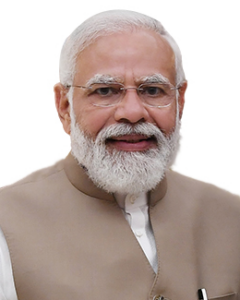
Aparna Sundar analyzes the basis of Modi’s authoritarian rule in India, including Hindutva, predatory capitalism, populist performance, and repression.

Aparna Sundar analyzes the basis of Modi’s authoritarian rule in India, including Hindutva, predatory capitalism, populist performance, and repression.

The ties between India and Russia, and a call for the Indian left to support Ukraine against the Russian invasion.

Modi’s India, Putin’s Russia, Bolsonaro’s Brazil, Orban’s Hungary, and soon Giorgia Meloni’s Italy and maybe Trump II’s United States, the picture is far from being exhaustive but it still gives an idea of the seriousness of the threat that now hangs over humanity.

The Coalition for Nuclear Disarmament and Peace (CNDP) India, expresses its grave concern at the situation in Ukraine.

Since publication of its first assessment report in 1990, the IPCC has borne witness to the ever-worsening problem of anthropogenic climate disruption, together with what amounts to humanity’s suicidal failure to address the factors threatening collective destruction.
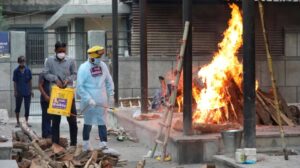
It’s hard to live in India these days, surrounded by death, fear and grief. We are inundated with heart-breaking TV reports of people begging for hospital beds and oxygen as their family members die on the pavement or in vehicles gasping for breath.
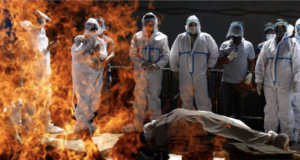
What is happening in India right now is mass murder. And it is organized by a man who has practice in such matters. Narendra Modi has brutally wielded the might of the Indian state to shape a polity safe for capital.
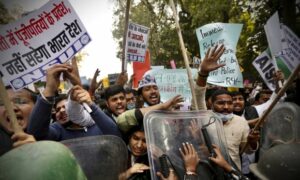
The ongoing Indian farmers’ protest in reaction to corporatisation of agricultural land and access to Mandis (open markets) demands an urgent legal reexamination of its impact on agrarian labour and small-scale farmers.
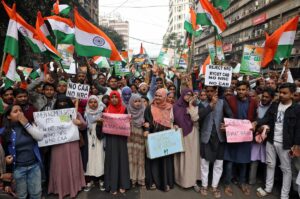
Samantha Agarwal discusses the foundations of BJP rule in India and prospects for resistance. (From our Summer 2020 issue.)
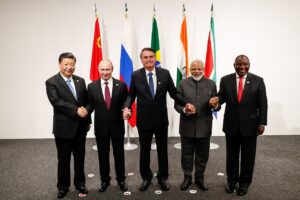
An examination of the significance of BRICS countries as “sub-imperial” powers in the context of global capitalism and imperialism.

The fact that average upper-caste Indians speak up about racism but not about caste shows their duplicity, hypocrisy and armchair activism for believing in a concept that should be discarded.

On 1 May 2020, which was International Worker’s Day, 18 Indian migrant workers boarded and hid in a cement mixer which was carrying them from Mumbai to Uttar Pradesh.
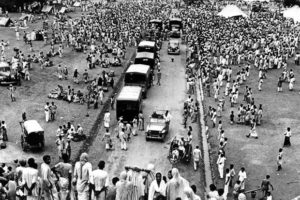
Human beings have been repeatedly subjected to mass displacement and migration due to war, strife and conflict originating on the grounds of religion, race or ethnicity. If a “sneak peak” is taken into the pages of documented human history of . . .

Sabrina, a graphic novel by Nick Drnaso, is the first graphic novel to be long listed for the Man Booker Prize in the award’s long history. It came as a surprise to many of the loyalists of the literary community . . .
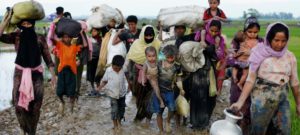
In early December of 2017 the Trump Administration officially withdrew the United States from the UN Global Pact on Migration, claiming the 2016 accord “undermine[s] the sovereign right of the United States to enforce our immigration laws and secure our borders.” . . .

The irony of India celebrating its 72nd year of national independence as it orchestrates a coup and military lock-down on the occupied territory of Kashmir was apparently lost on Indian Prime Minister Narendra Modi.
Modi used the occasion of an annual . . .
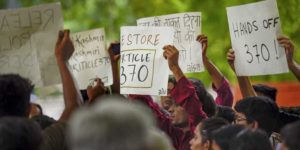
As the Indian government resorts to annexation of the state of Jammu and Kashmir at gunpoint, detaining its political leaders and cutting off all means of communication, we extend our solidarity to the people of Jammu and Kashmir as they . . .

Critical developments around the globe compel the creation of a new type of transnational socialist and anti-authoritarian solidarity network.

Tulsi Gabbard is getting a pass from people who should know better, first from Glenn Greenwald and then from the folks at Democracy Now! They describe her as “progressive except that some leftists on some issues . . .
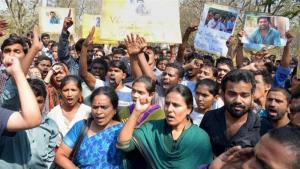
Reservation is an issue that only affects a small proportion of Dalits, says sociologist Vivek Chibber.
The ferment on campuses across the country following Rohith Vemula’s suicide and the recent crackdown on free speech at Jawaharlal Nehru University have drawn international attention, with many academics, students and activists across the world expressing solidarity.